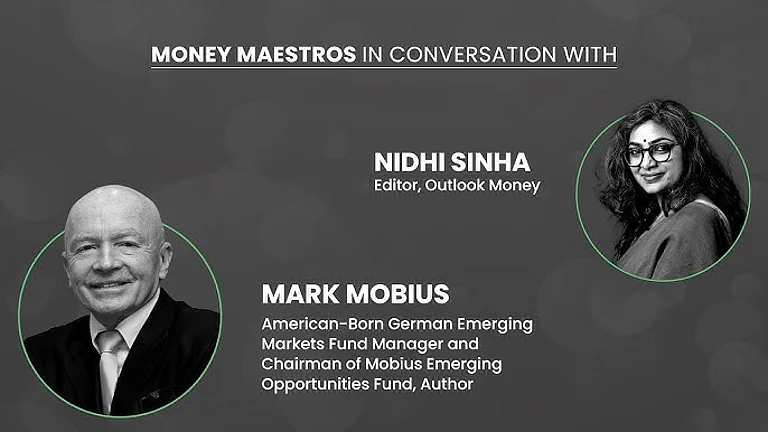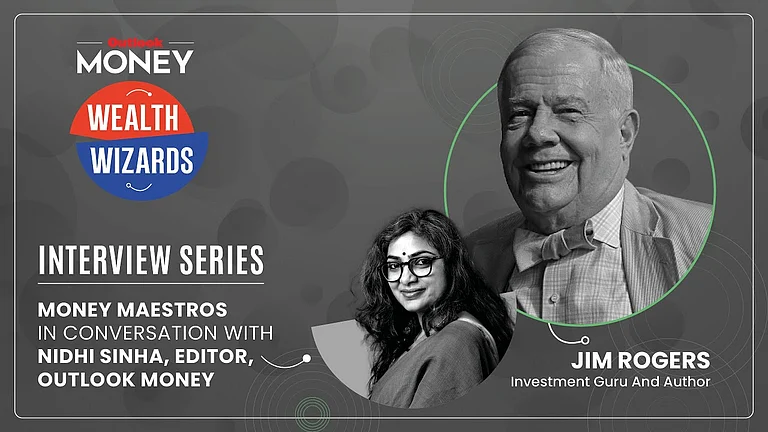In a recent Wealth Wizards interview with Nidhi Sinha, Professor Sanjay Bakshi, a renowned specialist in behavioral finance and value investing, gave excellent insights on investing and the virtue of patience. Bakshi, who has been practicing value investing for over 30 years, underlined the significance of taking it slowly and focusing on long-term goals rather than pursuing short-term rewards.
Wealth Wizards: Lessons Of Patience From Professor Sanjay Bakshi
Sanjay Bakshi, a prestigious profession at Flames University in Pune and a value investor opens up about various aspects of his journey and his learning from the career
Bakshi's adventure began in 1994 when he returned from the London School of Economics, where he learned about the value investing strategy through Warren Buffett's letters. As a chartered accountant, he was familiar with the basics of accounting but had little knowledge of business economics and psychology. His pivotal moment occurred when he recognized that investment should not be about frequent trading or short-term speculation.
Concentrating on Quality and Potential
Bakshi was an aggressive trader early in his career, owning a high number of assets and churning his portfolio often. However, with time, he realized the importance of compound interest and the prudence of slowing down. Today, he makes only a few investment selections each year, emphasizing high-quality enterprises above frequent deals.
This lesson is vital for today's younger generation since many are tempted to trade and rapid riches. A SEBI investigation found that a considerable number of retail investors lose a lot of money while trading F&O (futures and options). He said, “Nikhil Kamath, the curator of trading platform Zerodha, has disclosed a while back that more than 9- per cent of the people on the platform don’t make money, they have lost it and the remaining 10 per cent I think only a small fraction have beat the FD rate.”
Bakshi's counsel to prospective investors is straightforward: approach investing as a company, concentrating on the quality and potential of the underlying assets. Short-term earnings may appear appealing, but genuine wealth is achieved through patience and thorough study. He believes that the secret to successful investment is to take a long-term perspective, avoid excessive risks, and allow compound interest to work its magic.
“People trade because of availability and reduced charges levied by such platform, the propensity of gamble goes up due to no charges which may be good from the market point of view but it has a perverse outcome which is making people into gamblers,” Bakshi stated.
Bakshi emphasized the difference between investing and trading, arguing that investing involves becoming a partner in a growing business, while trading is a zero-sum game. He warned that the reduction of trading costs has led to a rise in trading, which he viewed as dangerous and turned many people into gamblers.
Investing Philosophy
Bakshi's investing philosophy emphasizes long-term business quality and understanding market participants' psychology. He learned from his mistakes and maintained an equanimous mindset, understanding that both good and bad periods in investing are impermanent. Bakshi integrates the teachings of Buffett and Munger into his approach to business quality and pricing, favouring high-quality businesses but insisting on paying a bargain price, as taught by Benjamin Graham. This philosophy has led him to maintain a concentrated portfolio and avoid overpaying for quality businesses.
Don’t Trade Hastily
Bakshi's counsel to ordinary investors is straightforward: focus on the fundamentals of the company, have a long-term perspective, and avoid the temptation to trade hastily. By combining accounting, economics, and psychology teachings, investors may develop a better-educated and balanced investment strategy.
During market sell-offs, such as the COVID crisis, many investors struggle to capitalize on opportunities owing to fear, debt, and uncertainty. Professor Sanjay Bakshi underlined that people without debt should see market pessimism as a chance to purchase at reduced prices, even if psychological biases make it difficult to act at such times. Fear and uncertainty cause many people to avoid investing, despite the fact that market-wide sell-offs have historically produced excellent returns. He recommends investors to consider long-term, concentrating on whether a company can prosper in the next 5-10 years rather than reacting to short-term fears.
No Excessive Borrowings
Bakshi also advised against excessive borrowing, particularly for depreciating goods such as vehicles, which can cause financial stress and limit investing prospects. He promotes living below one's means, saving, and investing during market downturns. He recommends two approaches: investing in particular firms or continually contributing to broad-based index funds to benefit from long-term economic development.
Recency Bias
Sanjay Bakshi examines the recency bias, in which individuals place too much emphasis on current events and expect they will define long-term results. For example, during the COVID-19 epidemic, many people felt that companies like restaurants and theme parks, which lost money due to closures, would fail forever. However, this approach ignores human nature, as people like interacting and will ultimately return to such establishments. Bakshi highlights that short-term setbacks, such as a bad quarter or temporary losses, do not determine a company's long-term destiny. He urges organizations to consider their total, long-term performance rather than making judgments based on recent occurrences.

